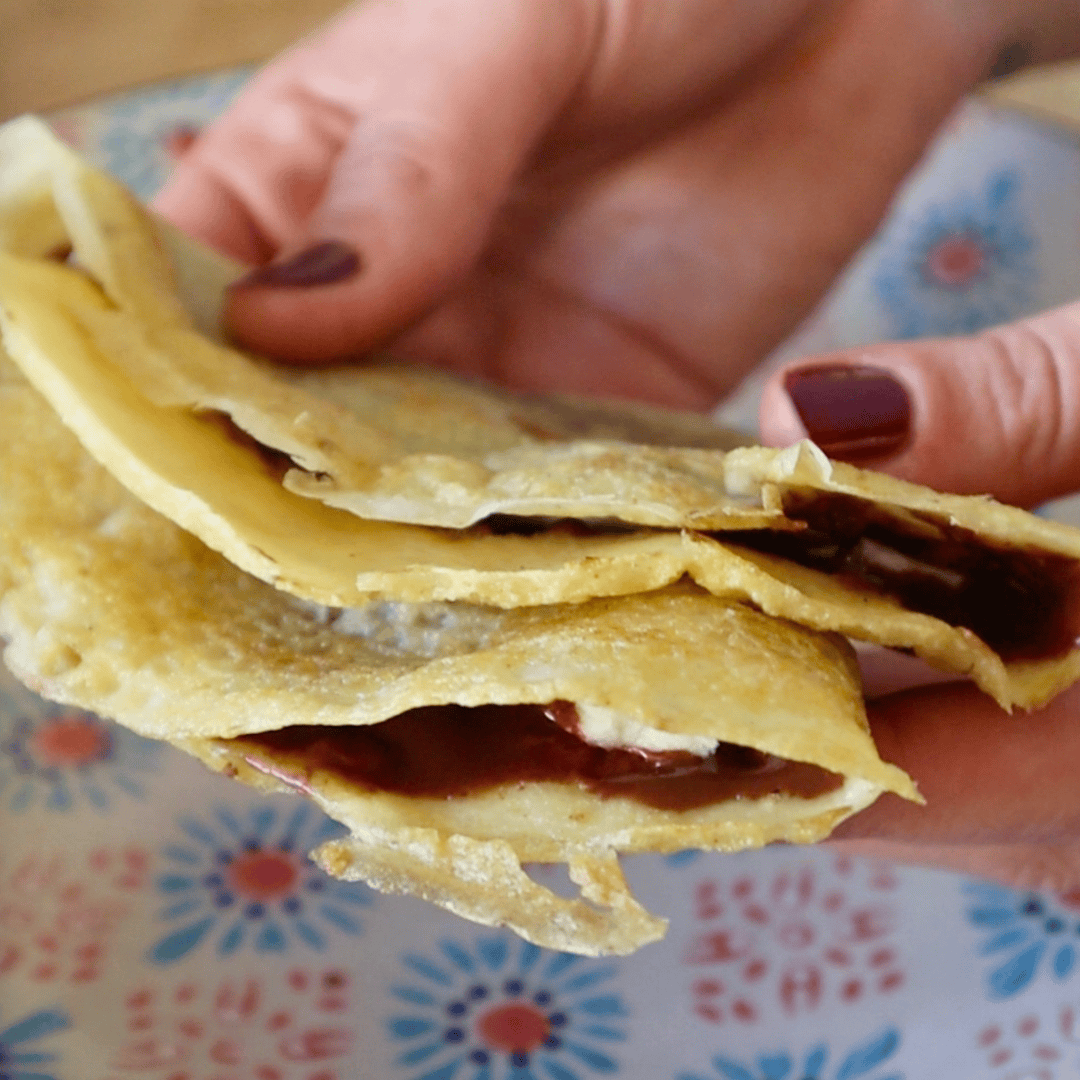Whether you’re vegan, avoiding honey due to dietary restrictions, or simply out of honey and need a substitute, there are plenty of options to explore.
Honey is a natural sweetener used in countless recipes, but for those who choose not to use it, there are versatile alternatives that replicate its sweetness, texture, and functionality.

This guide is here to help you find the perfect substitute for your culinary needs.
These substitutes not only replicate honey’s sweetness and texture but also add their unique flavors and benefits to your recipes.
Why Do Vegans Not Use Honey?

Vegans avoid honey because it is an animal product. It’s derived from bees, and veganism seeks to exclude the exploitation of animals in all forms.
Beekeeping practices often involve manipulation and harm to bees. For instance, bees may be subjected to artificial insemination, the removal of their wings, or the destruction of entire colonies after harvesting.
Additionally, honey is a critical food source for bees, providing them with the nutrients they need to survive.

When honey is harvested, it’s often replaced with less nutritious substitutes like sugar water, which can negatively impact bee health. Harvesting honey often disrupts the bees’ natural processes and can lead to stress or harm to the colony.
By choosing plant-based alternatives, vegans aim to support ethical practices that minimize harm to animals, including insects.
Opting for honey substitutes also aligns with broader environmental concerns, as pollinators like bees play a critical role in maintaining ecosystems and global food production.
Best Substitutes For Honey
1. Maple Syrup

Maple syrup is a natural sweetener derived from the sap of sugar maple trees. It’s well-known for its rich, caramel-like flavor and smooth texture.
Maple syrup’s viscosity and sweetness make it a great alternative to honey. It’s plant-based, making it suitable for vegans, and has a unique flavor that enhances many dishes.
Best uses: Drizzling, sweetening tea or coffee, marinades and dressings
Pros: Widely available and easy to use, similar viscosity, packed with antioxidants and minerals
Cons: distinct flavor, can be pricey compared to other options
Ratio: Use 1:1. For every tablespoon of honey, substitute with one tablespoon of maple syrup.
2. Agave Nectar

Agave syrup, or agave nectar, is a sweetener derived from the agave plant, primarily grown in Mexico.
This syrup has a mild flavor and a consistency similar to honey, making it an excellent vegan-friendly alternative. Its neutral taste works well in a variety of recipes.
Best uses: sweetening tea or coffee, baking, topping and drizzling
Pros: Neutral flavor, affordable, easy to find
Cons: less viscous, thinner in texture
Ratio: Use 1:1. Replace one tablespoon of honey with one tablespoon of agave syrup.
3. Simple Syrup

Simple syrup is a mixture of sugar and water, typically in a 1:1 ratio, heated until the sugar dissolves.
While not as thick as honey, simple syrup provides sweetness and is easy to make at home with basic ingredients.
Best uses: sweetening beverages, baking, glazes
Pros: easy to prepare, neutral flavours, affordable and accessible
Cons: not the same viscosity
Ratio: Use 1:1 for sweetness. If thickness is needed, reduce the water content during preparation.
4. Golden syrup

Golden syrup is a byproduct of sugar refining, with a rich amber color and smooth consistency. It’s a thick inverted syrup made from sugar, citric acid, and water.
It has a mild caramel flavor and is commonly used in British baking.
Golden syrup has a similar viscosity to honey and provides a comparable level of sweetness, making it a versatile substitute. Its neutral yet slightly buttery flavor works well in various recipes.
Best uses: baking, sweetening beverages and breakfasts, glazes and sauces
Pros: easy to find, similar consistency and sweetness to honey, neutral flavor
Cons: fewer nutrients than honey
Ratio: Use 1:1. Replace one tablespoon of honey with one tablespoon of golden syrup.
5. Date Syrup

Date syrup is made by blending dates with water and sometimes straining the mixture to achieve a smooth consistency. It’s rich in nutrients and has a deep, caramel-like flavor.
Date syrup has a thick consistency similar to honey and offers natural sweetness along with added fiber and minerals.
Best uses: smoothies, baking, topping
Pros: nutrient-dense, thick texture, rich and earthy
Cons: distinct flavor may not suit all recipes, harder to find
Ratio: Use 1:1. Substitute one tablespoon of honey with one tablespoon of date syrup.
6. Coconut Nectar

Coconut nectar is derived from the sap of coconut palm blossoms. It’s less processed than many other sweeteners and has a mild, slightly tangy flavor.
Its consistency and sweetness are similar to honey, making it a versatile alternative. Coconut nectar is also vegan and minimally processed.
Best uses: drizzling, sweetening tea or coffee
Pros: rich in nutrients, mild flavor
Cons: can be expensive, limited availability in some regions
Ratio: Use 1:1. Replace one tablespoon of honey with one tablespoon of coconut nectar.
7. Brown Rice Syrup

Brown rice syrup is made by breaking down the starches in brown rice into simple sugars. It has a mild, nutty flavor and a thick consistency.
Its thickness and sweetness are similar to honey, making it a good plant-based option for recipes where texture is important.
Best uses: baking, sweetening beverages
Pros: mild, neutral flavor, vegan and gluten-free, less sweet than honey offering more control over sweetness
Cons: Lower sweetness may require more to achieve the desired taste
Ratio: Use 1:1. If additional sweetness is needed, adjust to taste.
8. Molasses

Molasses is a byproduct of sugar production, either from sugar cane or sugar beets. It has a dark, robust flavor and thick consistency.
Molasses offers a similar texture and can provide depth of flavor, especially in rich baked goods and savory dishes.
Best uses: baking, marinades and sauces
Pros: high in minerals like iron and calcium, unique, bold flavor, vegan and widely available
Cons: strong flavor may overpower subtle recipes, not as sweet as honey
Ratio: Use 1:1, but consider reducing other strong flavors in the recipe to balance.
9. Malt Syrup
Malt Syrup or extract is the concentrated form of unfermented brewery wort. Malt syrup is generally produced as a viscous, dark sticky liquid.
It’s less sweet than honey but has a unique, rich taste. Malt syrup’s viscosity makes it a suitable replacement for honey in baking and cooking. However, its maltiness can alter the flavor of some recipes.
Best uses: baking, sweetening oatmeal or granola, adding depth to savory sauces
Pros: thick texture, unique flavor
Cons: very thick and sticky, making it harder to work with, acquired taste
Ratio: Use barley malt syrup in a 1.25:1 ratio when substituting for honey.
Vegan Honey Brands
Nowadays, there are of course also vegna honey brands. Here are some to check out:
Choosing the Right Substitute
When deciding on a substitute for honey, consider the following factors:
- Flavor: Some alternatives have a neutral taste, while others (like molasses or date syrup) have distinct flavors that may overpower certain dishes.
- Consistency: If your recipe relies on honey’s thickness, choose a substitute with a similar texture, such as maple syrup or golden syrup.
- Availability: Some substitutes, like agave nectar or maple syrup, are widely available, while others might require specialty stores or online shopping.
- Cost: Budget-friendly options like simple syrup or brown rice syrup are great for everyday use, while pricier alternatives might be better for special recipes.
Final Thoughts
Usinf honey substitutes doesn’t mean sacrificing flavor or functionality. From the caramel richness of date syrup to the familiar sweetness of maple syrup, there’s an option for every taste and recipe. Experiment with different substitutes to find your favorites, and enjoy the satisfaction of creating delicious dishes that align with your values. Sweetness doesn’t have to come at a cost to the planet or its creatures, and these alternatives prove just that!









